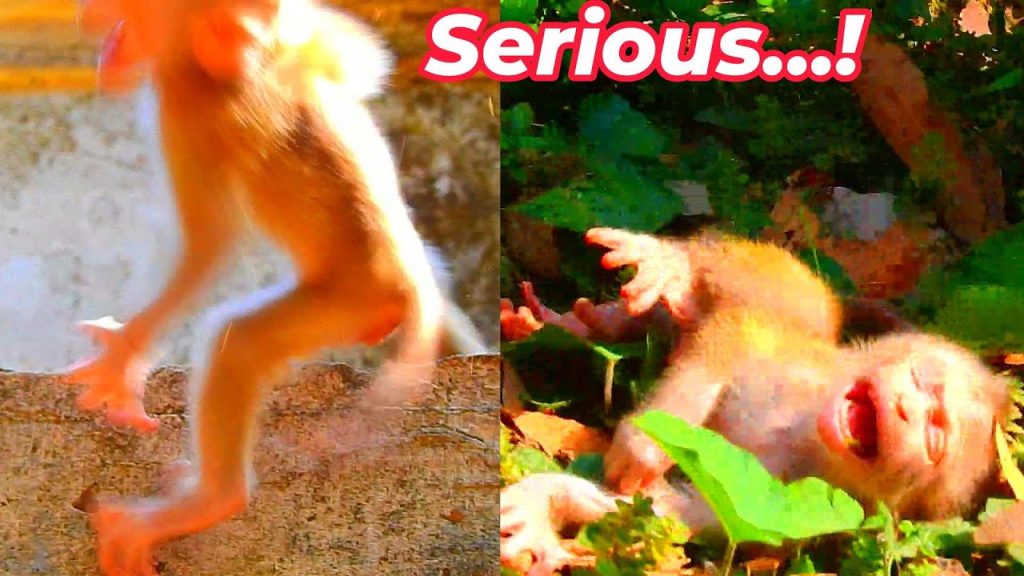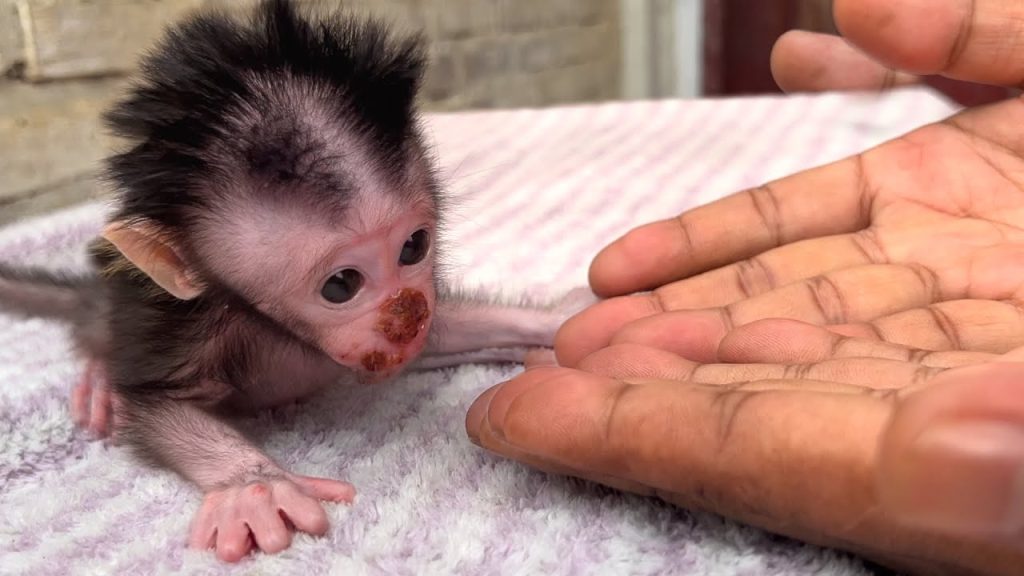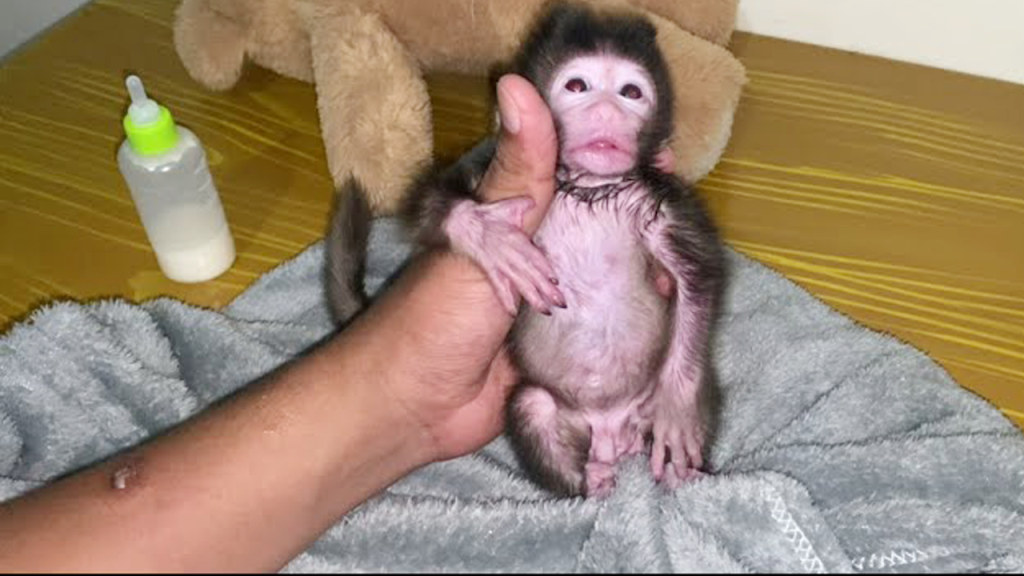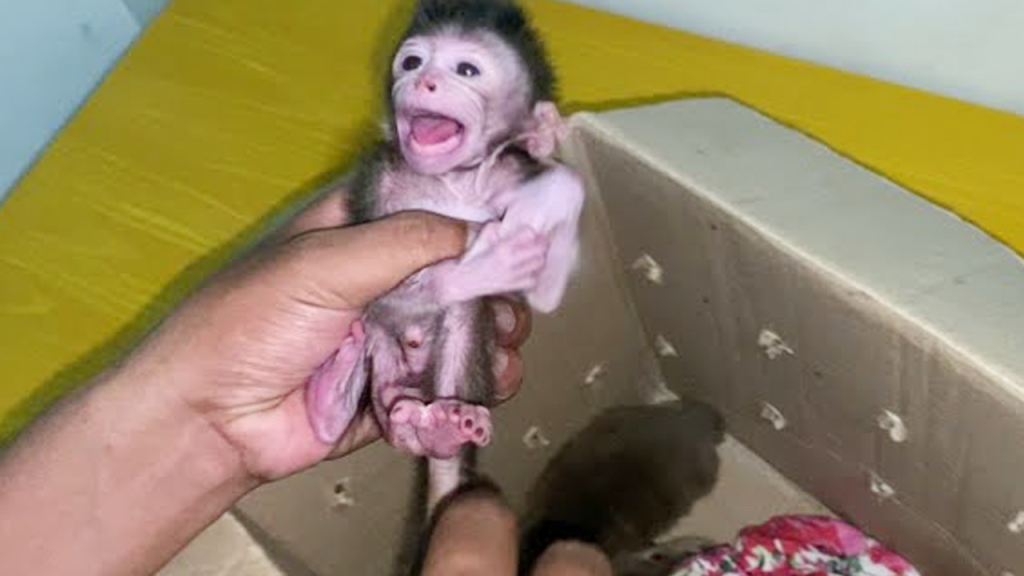
The bond between a mother monkey and her baby is often imagined as one of pure love, tenderness, and protection. For the most part, this is true—newborns cling tightly to their mothers, and mothers fiercely guard their young from danger. Yet, sometimes, moments occur that shake this image, revealing the complicated dynamics of survival in the animal world.
The baby monkey in this story cried loudly, clinging desperately to its mother, its voice carrying through the trees. Instead of offering comfort, the mother acted aggressively, shaking the infant and pushing it away. To any observer, the scene was heartbreaking. The baby’s cries sounded like a plea, as if it were asking, “Why is my mother hurting me?”
There are many possible reasons for this kind of behavior. In nature, stress can cause mothers to act unpredictably. If food is scarce, or if the mother feels pressure from other troop members, her patience with her infant may dwindle. Sometimes, a baby born weak or sick may be rejected instinctively. And in certain cases, first-time mothers lack the experience to handle their young properly, leading to rough or harmful treatment.
The baby, too young to understand such survival-driven behavior, only knew fear. Each attempt to cling back to its mother was met with resistance. Its trembling hands reached out, its face pressed into her fur, but the comfort it sought wasn’t there. The mother turned away, leaving the little one scrambling for safety.
Observers often interpret these moments through a human lens, feeling heartbreak and pity for the infant. And indeed, it is a sorrowful sight—the small creature, so vulnerable and full of life, struggling against rejection from the very being it depends on most. Yet, from an animal behavior perspective, these events remind us that survival in the wild is harsh. Not every infant makes it, and not every mother is able—or willing—to provide constant care.
Still, the resilience of baby monkeys is remarkable. Even after such treatment, many try again and again, clinging harder, crying louder, refusing to give up on their mothers. Sometimes, this persistence is rewarded when the mother relents, pulling her baby close once more. Other times, nearby females, especially experienced mothers or “aunties” within the troop, may step in to comfort or even adopt the struggling infant.
This moment with the baby and its mother was filled with tension, sorrow, and unanswered questions. It reminds us of the fragile line between nurture and neglect, of how life in the animal kingdom can shift in an instant from safety to danger.
For the tiny infant, the struggle wasn’t just about survival—it was about longing for warmth, love, and the simple need to be held. Its cries echoed not only in the forest but also in the hearts of those who watched, carrying the same silent question: Why is my mother hurting me?


